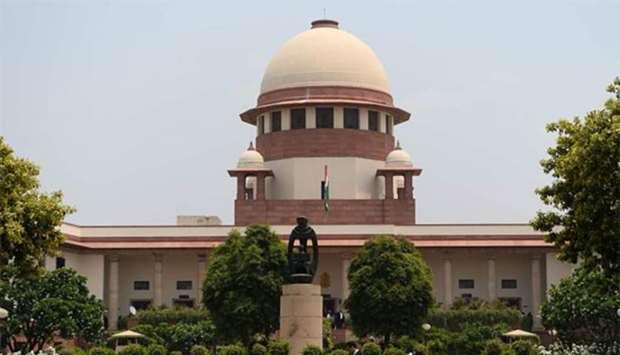India's Supreme Court on Monday upheld death sentences for three men over the infamous gang-rape and murder of a woman in New Delhi in 2012 that sparked national protests and soul-searching.
The woman, a physiotherapy student, was raped and left for dead by a gang of five men and a teenager on a bus in New Delhi in December 2012.
"The review petition of all the three convicts has been rejected," A. P. Singh, a lawyer for the defendants, told reporters.
The 23-year-old woman, on course to be the first professional in the family, was coming home from the cinema with a male friend.
The six gang raped and tortured her with an iron bar as the bus drove loops through the Indian capital.
Singh was dumped on the streets 45 minutes later with horrific internal injuries, and died 13 days later in a Singapore hospital.
The brutality of the attack, and her determination to survive long enough to identify her attackers to police, triggered angry demonstrations by thousands of people in Delhi and nationwide.
The case also put the treatment of women in the world's largest democracy in the global spotlight and led to a stiffening of sentences for sex crimes.
Four of the men were convicted in September 2013 for murder, gang rape, theft, conspiracy and "unnatural acts" after a seven-month trial in a fast-track court.
Only three of them were involved in the appeal rejected on Monday.
A fifth man, the suspected ringleader, was found dead in jail in a suspected suicide, while a 17-year-old was sentenced to three years in a detention centre and has since been released.
Sentencing the four in 2013, Judge Yogesh Khanna said the case fell into the "rarest of rare category" which justifies capital punishment in India.
But the four men have maintained innocence and have launched repeated appeals against their conviction.
After Monday's unsuccessful appeal, the convicts can still file a curative petition -- the last legal challenge -- to thwart their hanging and also seek a pardon from the president.
Following the 2012 case and subsequent protests, some of which were violent, there were demands to overhaul the laws on sexual assaults.
A panel entrusted with reviewing the legislation rejected public appeals for the death penalty for rape but boosted the jail terms to 20 years.
But the government then buckled under public pressure and approved capital punishment for repeat offenders.
There were some 40,000 rapes reported in India in 2016, according to the most recent official figures available.
But activists say this is just the tip of the iceberg as many victims are afraid to report the crimes due to threats by perpetrators or the social stigma attached to sexual assaults.
The woman, a physiotherapy student, was raped and left for dead by a gang of five men and a teenager on a bus in New Delhi in December 2012.
"The review petition of all the three convicts has been rejected," A. P. Singh, a lawyer for the defendants, told reporters.
The 23-year-old woman, on course to be the first professional in the family, was coming home from the cinema with a male friend.
The six gang raped and tortured her with an iron bar as the bus drove loops through the Indian capital.
Singh was dumped on the streets 45 minutes later with horrific internal injuries, and died 13 days later in a Singapore hospital.
The brutality of the attack, and her determination to survive long enough to identify her attackers to police, triggered angry demonstrations by thousands of people in Delhi and nationwide.
The case also put the treatment of women in the world's largest democracy in the global spotlight and led to a stiffening of sentences for sex crimes.
Four of the men were convicted in September 2013 for murder, gang rape, theft, conspiracy and "unnatural acts" after a seven-month trial in a fast-track court.
Only three of them were involved in the appeal rejected on Monday.
A fifth man, the suspected ringleader, was found dead in jail in a suspected suicide, while a 17-year-old was sentenced to three years in a detention centre and has since been released.
Sentencing the four in 2013, Judge Yogesh Khanna said the case fell into the "rarest of rare category" which justifies capital punishment in India.
But the four men have maintained innocence and have launched repeated appeals against their conviction.
After Monday's unsuccessful appeal, the convicts can still file a curative petition -- the last legal challenge -- to thwart their hanging and also seek a pardon from the president.
Following the 2012 case and subsequent protests, some of which were violent, there were demands to overhaul the laws on sexual assaults.
A panel entrusted with reviewing the legislation rejected public appeals for the death penalty for rape but boosted the jail terms to 20 years.
But the government then buckled under public pressure and approved capital punishment for repeat offenders.
There were some 40,000 rapes reported in India in 2016, according to the most recent official figures available.
But activists say this is just the tip of the iceberg as many victims are afraid to report the crimes due to threats by perpetrators or the social stigma attached to sexual assaults.

